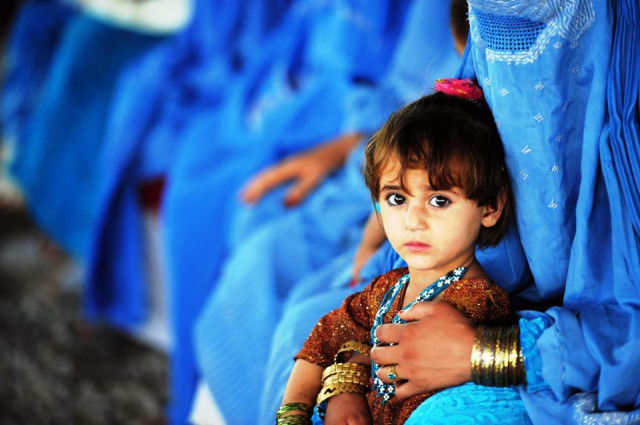Three million Afghans to be expelled by December
Ministry of states and frontier regions negotiating with Afghan agencies to ensure rehabilitation.

Authorities have declared that they are unwilling to extend the stay of almost three million Afghans residing in Pakistan beyond December 2012.
In an exclusive interview with The Express Tribune on Monday, Habibullah Khan, the secretary for the Ministry of States and Frontier Regions (Safron), a body that deals with Afghan refugees, said that Pakistani and Afghan agencies are negotiating among each other on the repatriation of 2.7 million refugees.
Official statistics show that 1.7 million Afghans residing in Pakistan hold legal documents issued by local authorities. While around one million are residing here without any legal documentation.
It is reported that authorities are planning to launch a crackdown to expel all illegal refugees that the country hosted for over three decades.
“One million illegal refugees would be treated under the Foreign Act of 1946,” he said. “We plan to expel all the illegal refugees from the start of next year…there is no way that we can extend their stay here.”
Pakistan and Iran have been hosting refugees since the 1979 Russian invasion. The countries prepared a roadmap for the repatriation at a conference held in Geneva in May this year.
The three countries have been running the repatriation programme for Afghan refugees with the financial and technical assistance of the United Nations High Commission for Refugees (UNHCR).
Statistics show there had been a consistent decline in the number of individuals returning to Afghanistan under a programme of voluntary repatriation assisted by the United Nations High Commission for Refugees (UNHCR). As many as 4.6 million Afghan refugees have been repatriated under the programme since it started in 2002.
The registered population living in Pakistan comprises 52.6% males and 47.4% females. Eighty-five per cent Afghans are Pakhtuns hailing from Nangarhar, Kabul, Kunduz, Logar, Paktia, Kandahar and Baghlan areas while the rest are Uzbeks and Tajiks.
Khyber-Pukhtunkhwa (K-P) hosts the largest of the refugee populace estimated at around 62.1%, followed by 20.3% in Balochistan, 11% in Punjab, 4.2% in Sindh, 2% in the federal capital and 0.4% in Azad Jammu and Kashmir (AJK).
The official figures revealed only 40.6% Afghans live in the villages or camps set up for the refugees while 59.4% are settled across Pakistan in both the rural and urban areas and earn livelihood through means other than funding by the United Nations.
In a survey conducted, 56% of the returnees are reported to be Pakhtuns. 26% of the refugees prefer Kabul as their most favoured destination followed by 20% who opted for Nangarhar.
According to Khan, Pakistan would allow students, vulnerable persons like unattended widows and orphans and some businessmen to stay here on their visa until they finish their pressing assignments.
Khan added that the Afghan authorities have expressed willingness to receive as many refugees from Pakistan as they can and hoped most would be leaving the country within the given deadline.
Published in The Express Tribune, July 18th, 2012.


1724319076-0/Untitled-design-(5)1724319076-0-208x130.webp)
















COMMENTS
Comments are moderated and generally will be posted if they are on-topic and not abusive.
For more information, please see our Comments FAQ